-
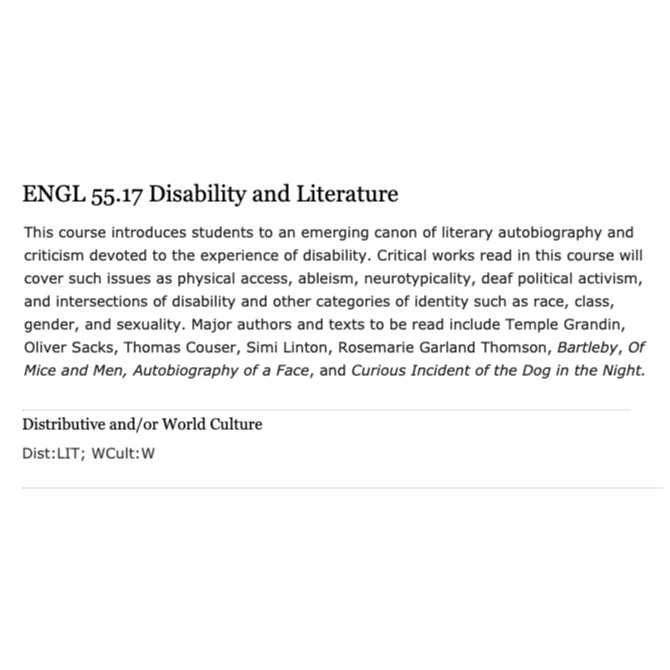
Course listing for ENGL 55.17: Disability and Literature in the Organizations, Regulations, Courses (ORC) catalog.
-
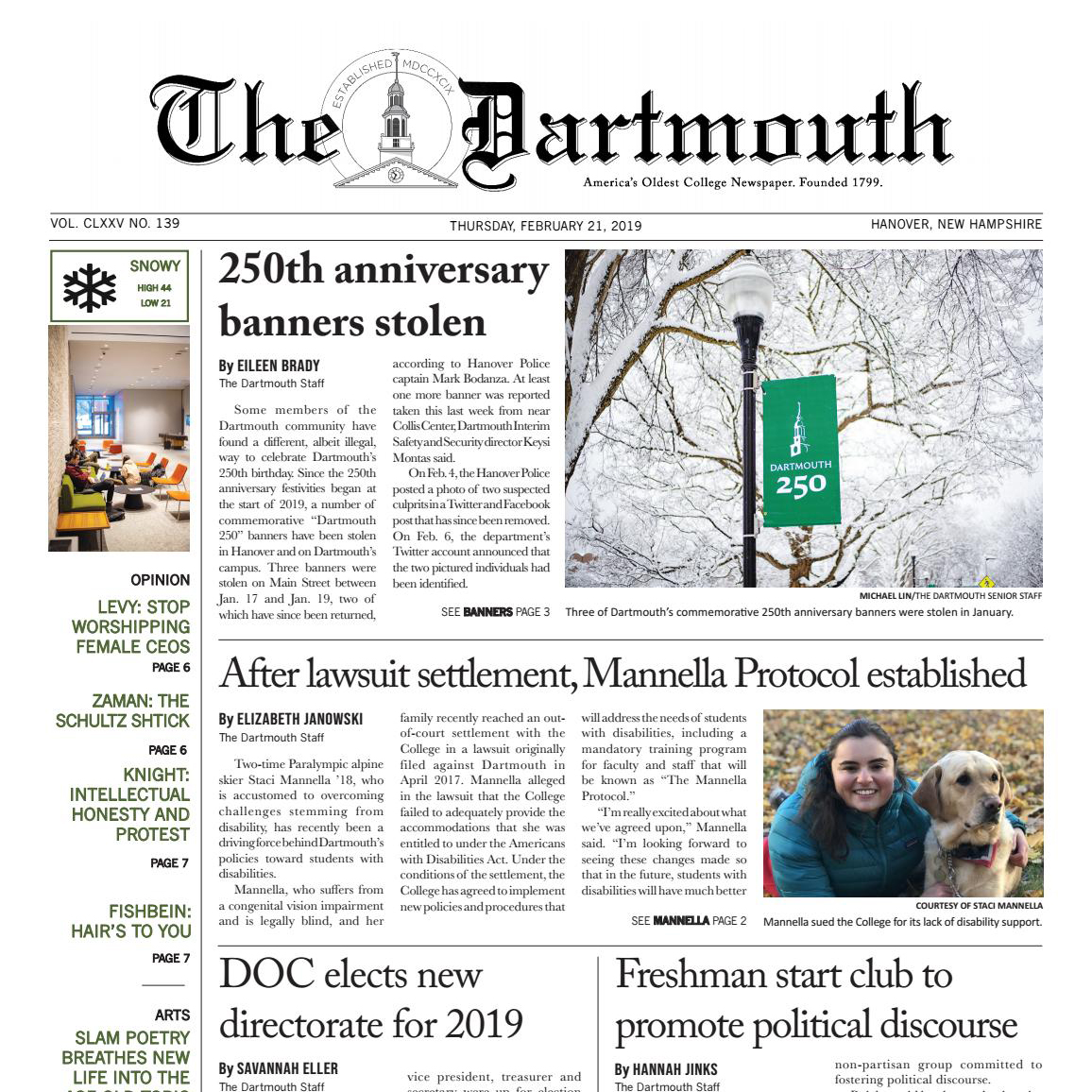
An article from The Dartmouth on the settlement of a lawsuit and resulting establishment of the Manella Protocol.
-
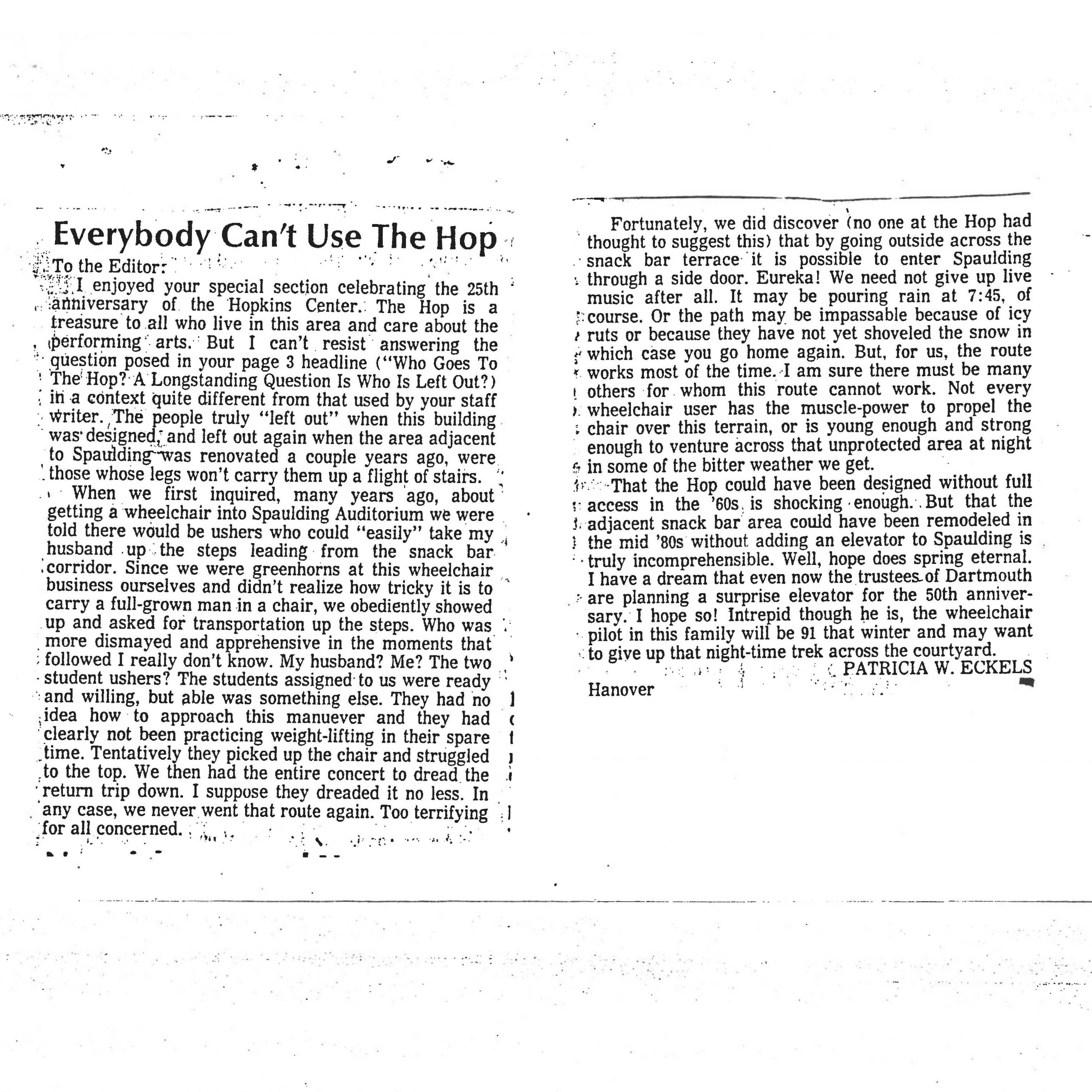
A newspaper clipping attached to a memo from the Chairman of the Hanover Town Board of Selectmen to the Assistant Director of Facilities Planning, in which Patricia Eckels outlines the accessibility issues at the Hopkins Center for the Arts. In her concluding remarks, she writes, “That the Hop could have been designed without full access in the '60s is shocking enough. But that the adjacent snack bar area could have been remodeled in the mid '80s without adding an elevator to Spaulding is truly incomprehensible.”
-
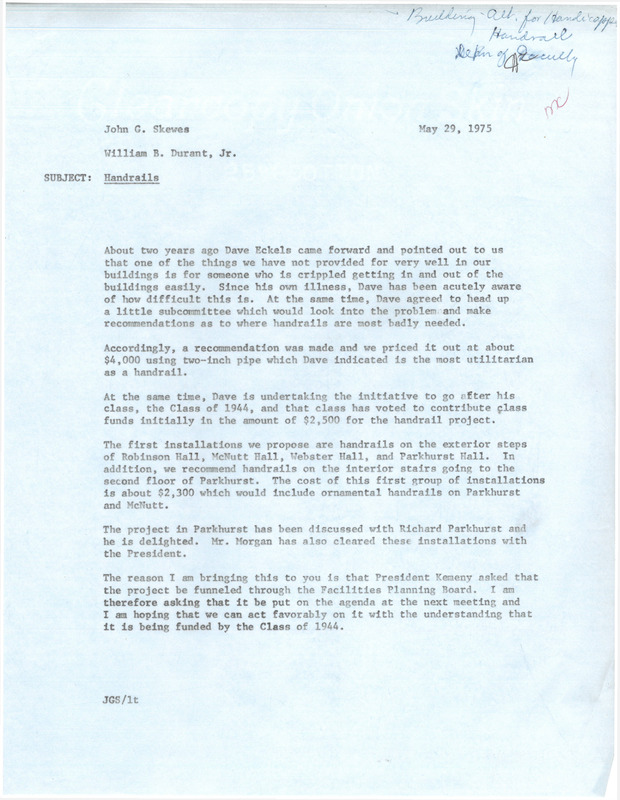
An exchange between members of the Facilities Planning Board regarding the installation of handrails in key locations across campus. Dave Eckels not only brought the issue to the attention of facilities staff, but served on a committee to determine where handrails were most needed and sought funding from his graduating class to make the handrail installation possible.
-
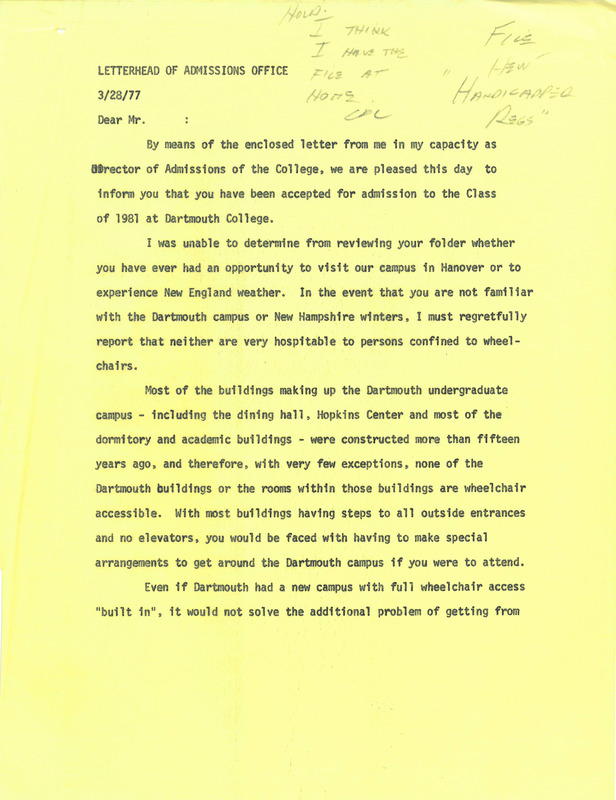
A letter from the Director of Admissions to an admitted student to the Class of 1981. The director is open about the inaccessibility of Dartmouth's campus and the difficulty wheelchair users have had attending Dartmouth in the past, but encourages the student to contact Dave Eckels for perspective on the disabled experience at Dartmouth. The letter's recipient is likely the same student who decided to attend Northwestern, thereby giving the College “at least a one year reprieve.”
-
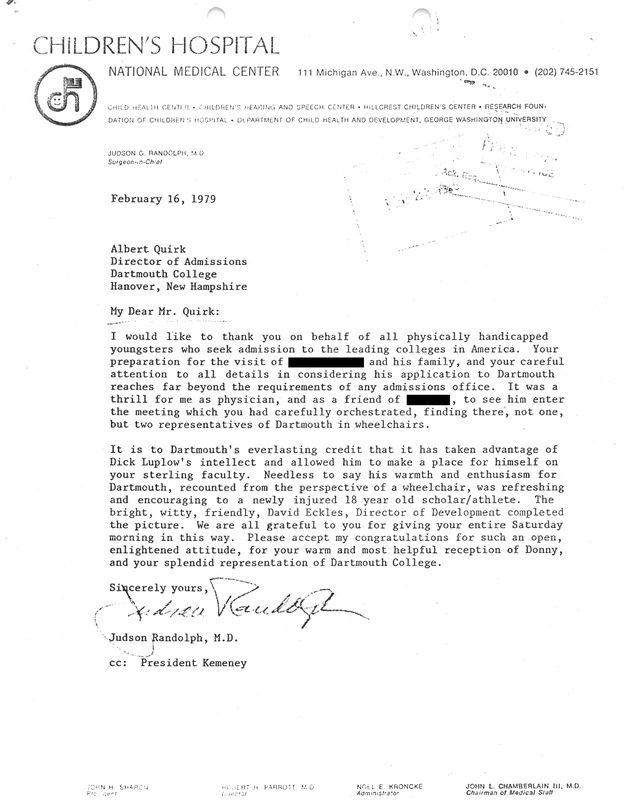
A letter from the doctor of an admitted student to the Class of 1983 expressing delight “to see him enter the meeting which [Dartmouth's Director of Admissions] had carefully orchestrated, finding there, not one, but two representatives of Dartmouth in wheelchairs.” The Dartmouth representatives were Richard Luplow and David Eckels.
-
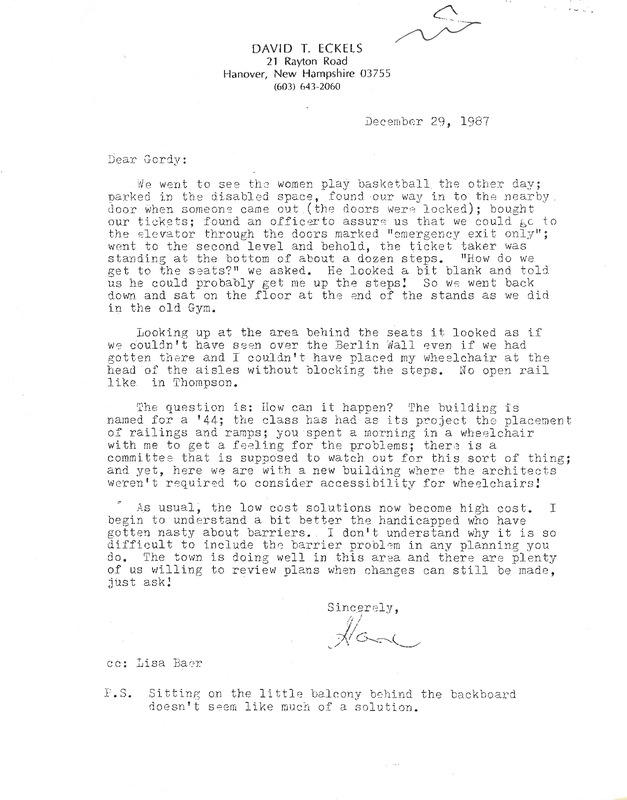
A letter from Eckels to Gordon DeWitt, recounting his negative experience attending a Women’s Basketball game on campus due to accessibility issues.
-
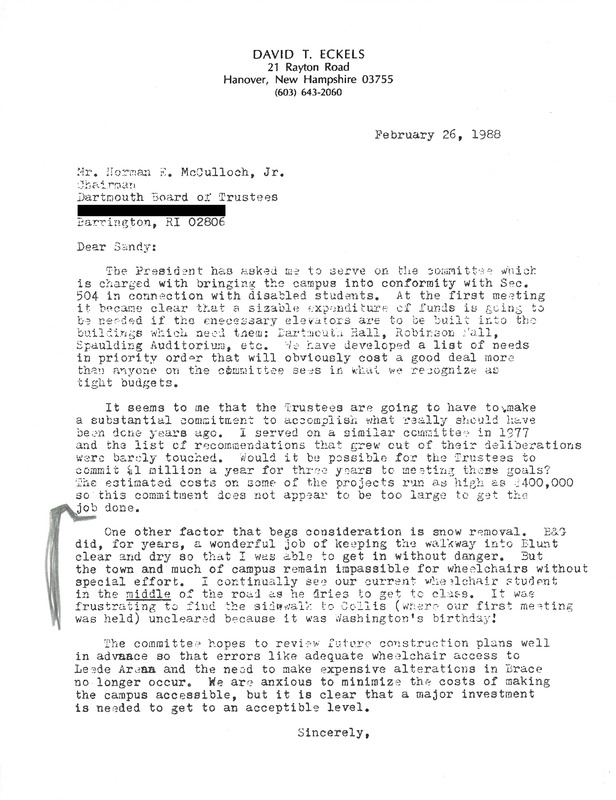
A letter to the Chairman of the Board of Trustees written shortly after Eckels joined the 504 Committee, explaining that “the Trustees are going to have to make a substantial commitment to accomplish what really should have been done years ago.”
-
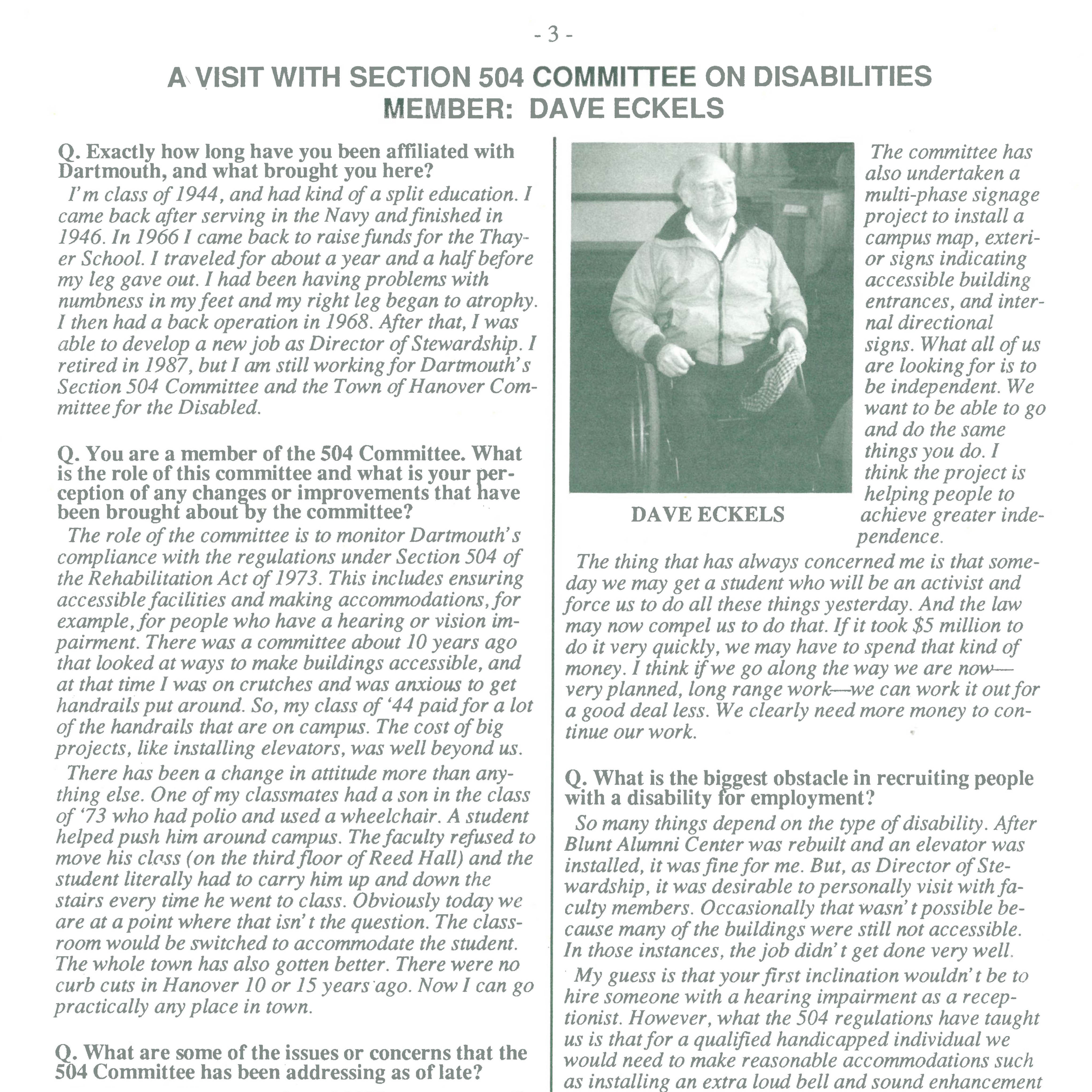
An interview with Eckels in his capacity as a member of the Section 504 Committee in the Winter 1991 Affirmative Action Newsletter.
-
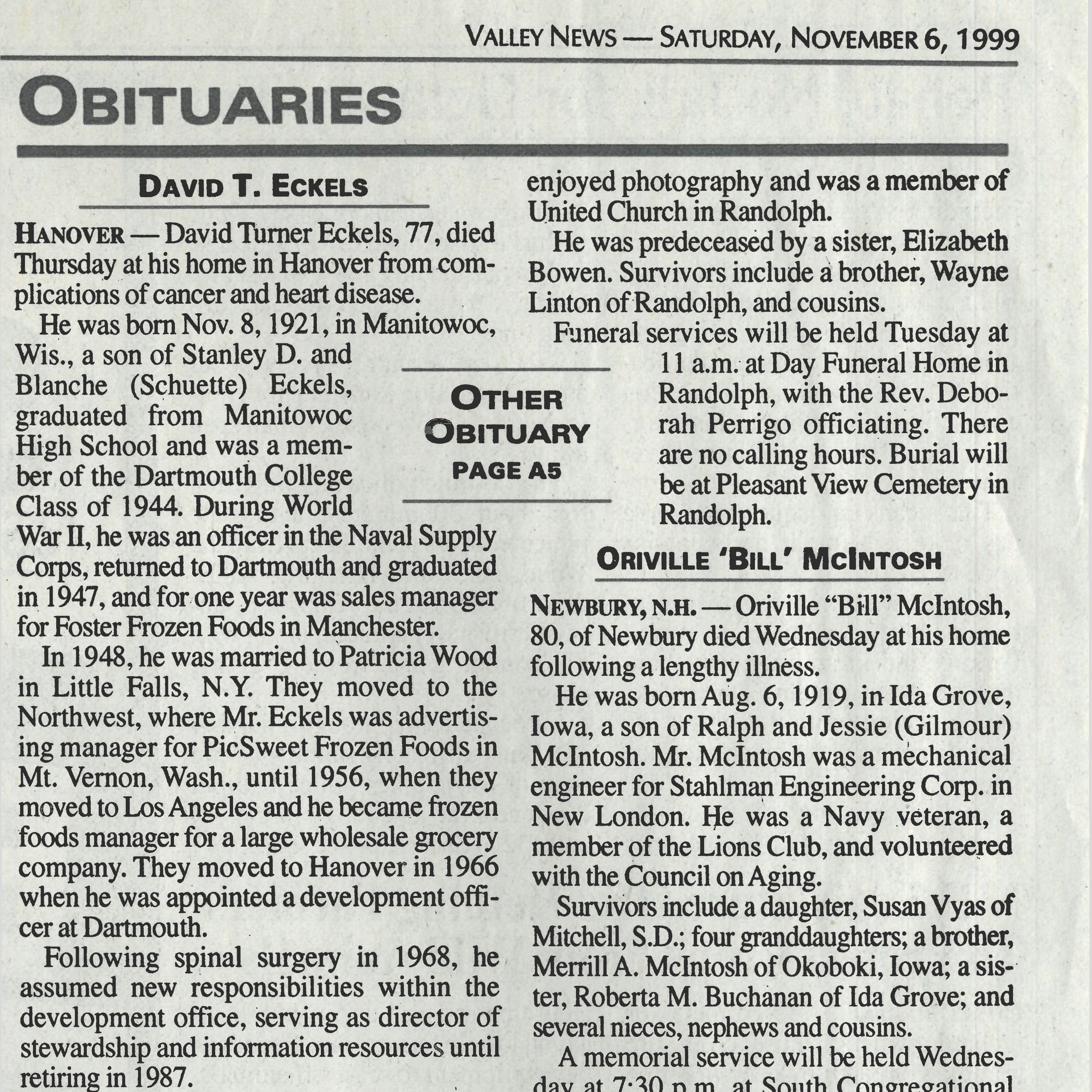
An obituary for Dave Eckels published in the Valley News.
-

David Eckels photographed on Memorial Track Field for the Dec. 1985 issue of the Dartmouth Alumni Magazine.
-
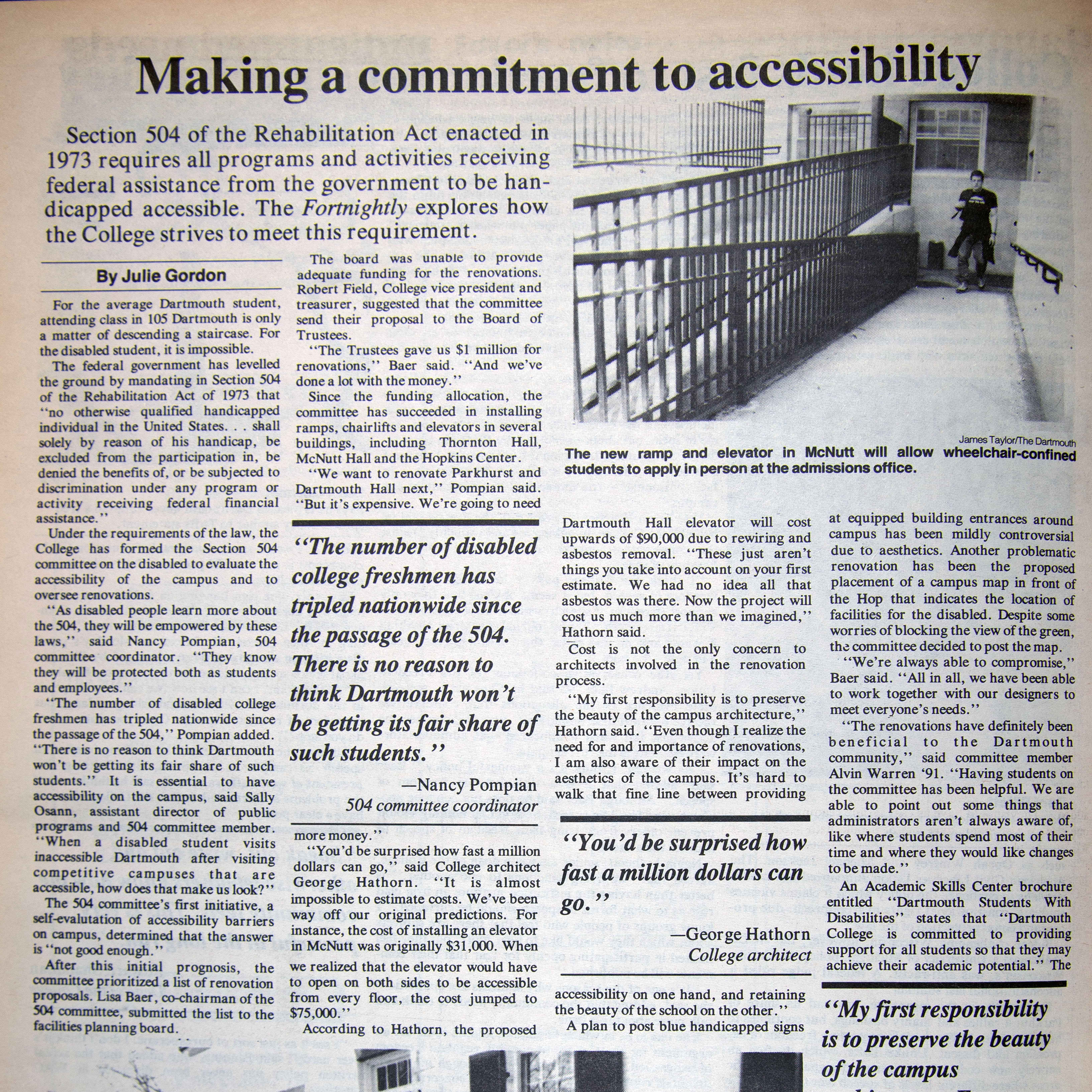
An interview with George Hathorn in which he discusses accessibility renovations and their potential impact on his commitment to preserving campus aesthetics as the College Architect.
-
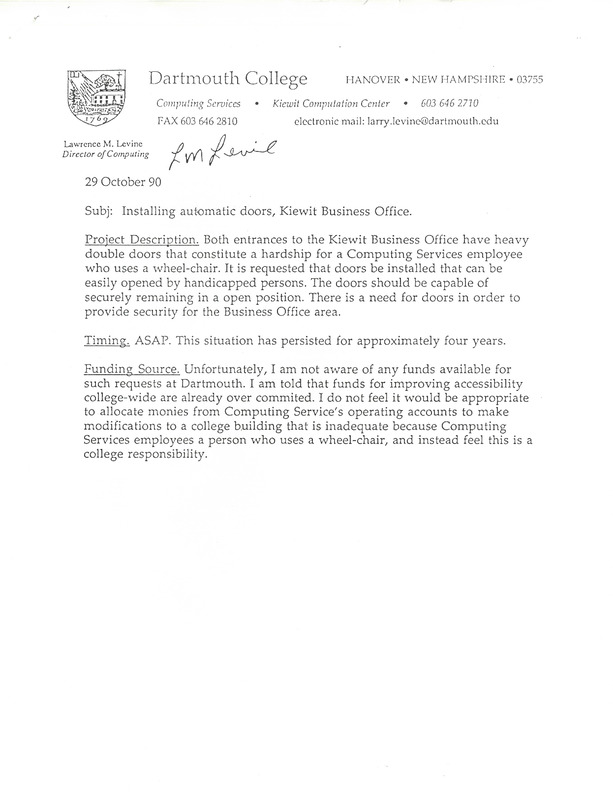
A memo from the head of the Kiewit Business Office regarding an accessibility issue outside the priority groups. A current employee in a wheelchair has difficulty opening the doors to the building and has been dealing with the problem for four years. Doors that would be easier to open are requested, although funding is cited as an issue.
-
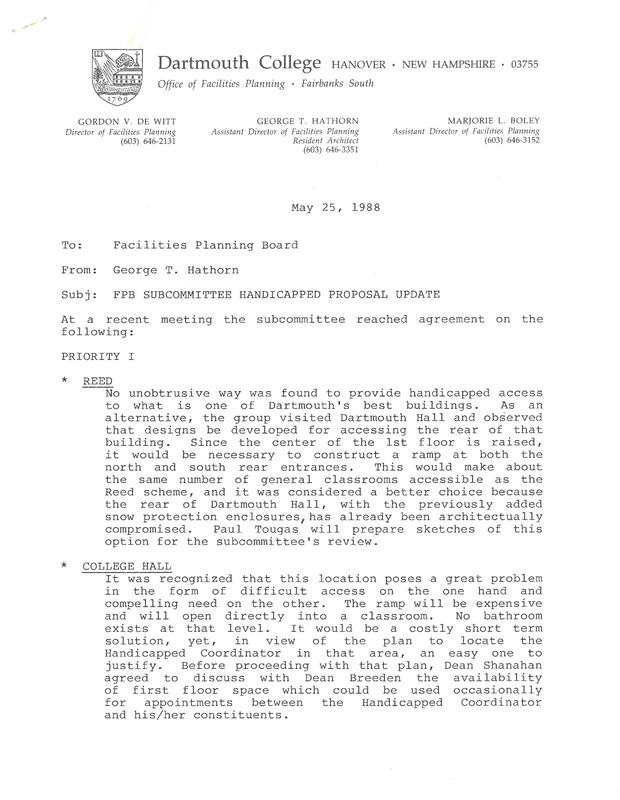
A statement by the Facilities Planning Board that includes an explanation for why accessibility renovations for Reed Hall have been cancelled, as “No unobtrusive way was found to provide handicapped access to what is one of Dartmouth’s best buildings.” Renovations are planned for Dartmouth Hall instead.
-
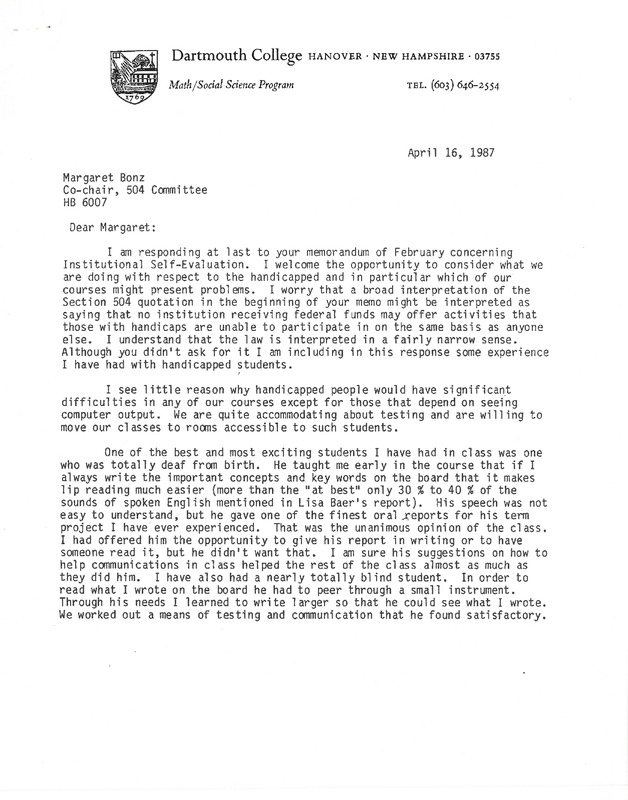
The self-evaluation for the Math and Social Science Program, in which Chair Robert Norman recounts his experiences teaching a deaf student and a nearly blind student, the accommodations he made, and his thoughts regarding accessibility in his department more broadly.
-
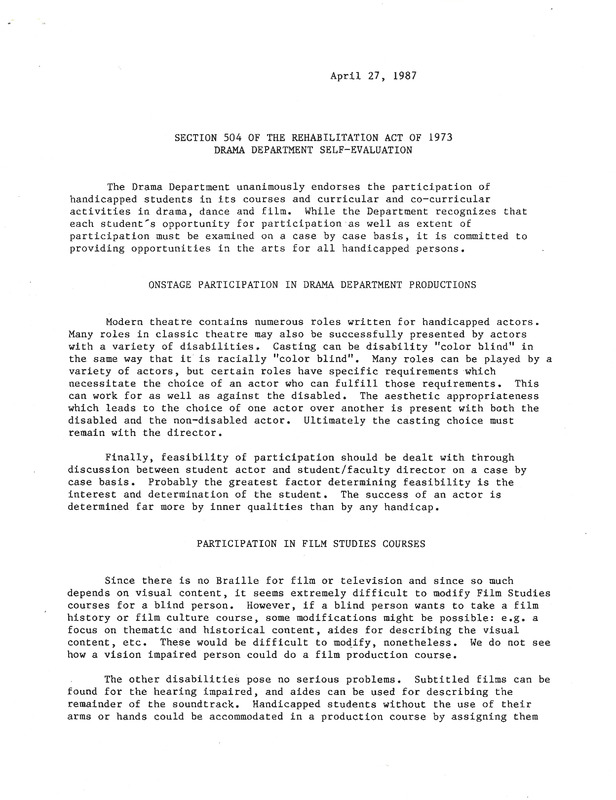
A lengthy self-evaluation by the Department of Drama in which some disabilities are declared categorically impossible to accommodate. The evaluation includes an assessment of every course the department offers and makes conclusions about their “suitability” for students with disabilities.
-
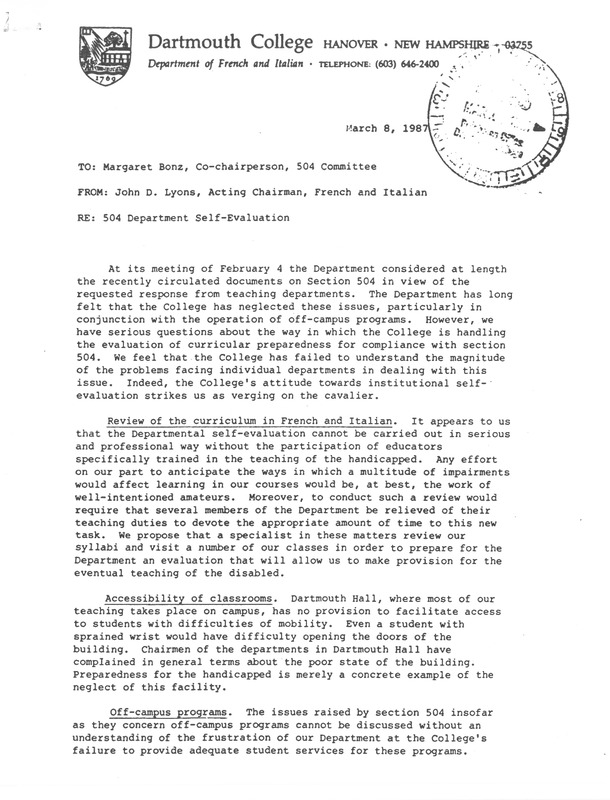
The self-evaluation completed by the Department of French and Italian in 1987. It includes what they consider to be the failings of the College to address faculty needs, building adaptation, and general institutional concerns regarding accessibility, including a condemnation of the very request for self-evaluations.
-
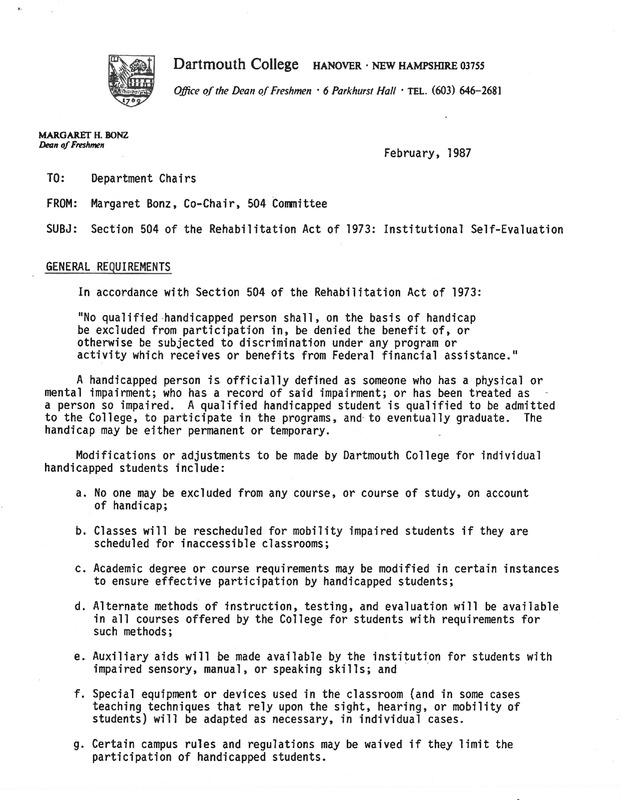
In this memo, co-chair of the Section 504 Committee informs department chairs of their need to complete an institutional self-evaluation to ensure Dartmouth's compliance with federal legislation. Attached to the memo is a guide for how to complete the self-evaluation, outlining the questions that need to be systematically addressed in departmental self-assessments.
-
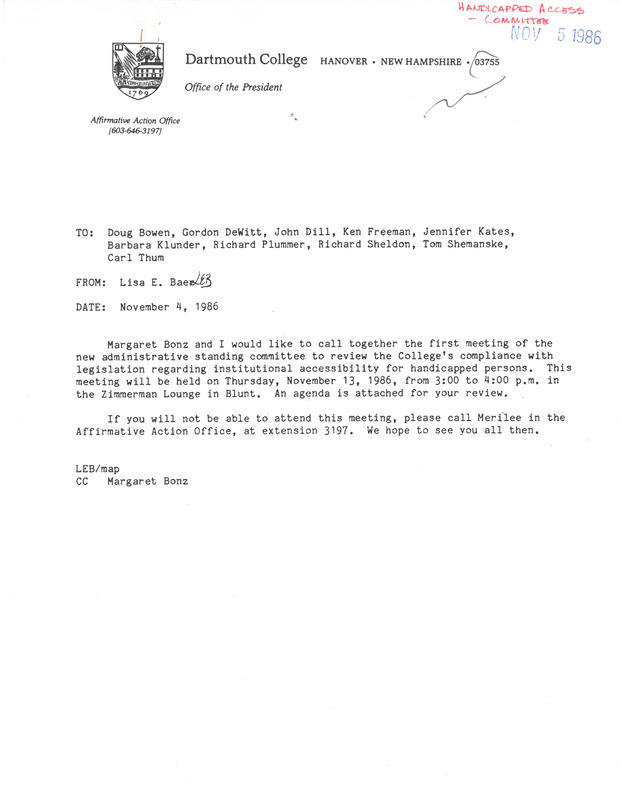
A memo announcing the establishment of “new administrative standing committee to review the College’s compliance with legislation regarding institutional accessibility for handicapped person[s]” to Dartmouth staff slated to serve on the new committee: Margaret Bonz (co-chair), Lisa E. Baer (co-chair), Doug Bowen, Gordon DeWitt, John Dill, Ken Freeman, Jennifer Kates, Barbara Klunder, Richard Plummer, Richard Sheldon, Tom Shemanske, and Carl Thum. This committee would be known as the Section 504 Committee.
-
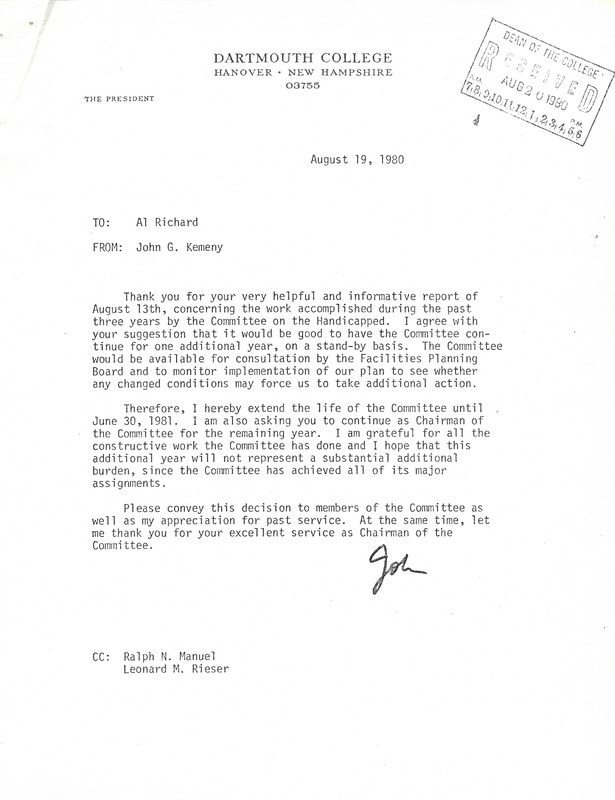
President Kemeny writes the chairman of the Committee on the Handicapped to grant permission for the committee to continue for a year longer than originally planned on a stand-by basis, as suggested in the committee's three-year report. This memo shows the administration's acknowledgment of a need to address issues of accessibility long after the initial responses to new federal legislation, foreshadowing the establishment of the Section 504 Committee on the Handicapped five years later.
-
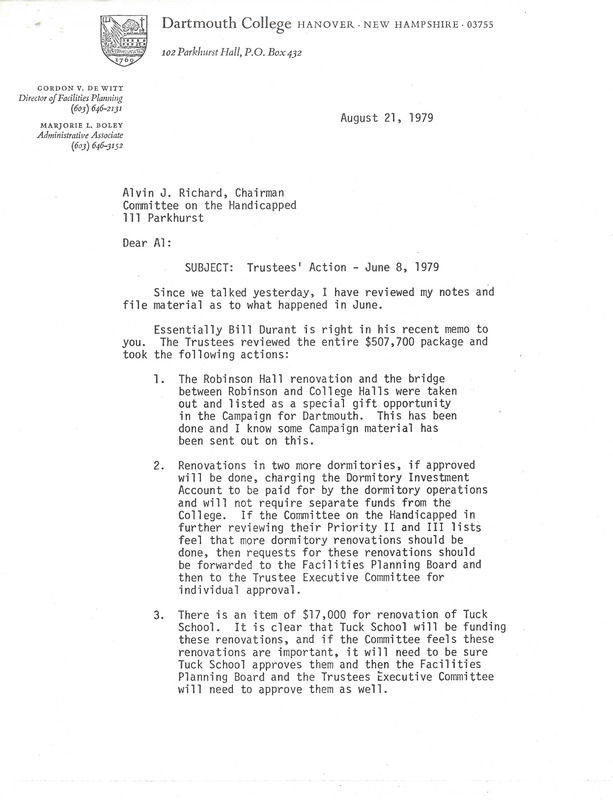
An internal memo sent on the same day that the Trustees voted on the Priority II and III budget, in which the Committee is informed that the remaining items on the Priority II and III budgets (e.g. beyond Tuck School, dormitories, and Robinson Hall) will require individual approval from both the Facilities Planning Board and the Trustees Executive Committee. In order to avoid committing the College to funding accessibility renovations unless absolutely necessary, the memo states that a “go-slow” posture should be adopted to make room for gift opportunities.
-
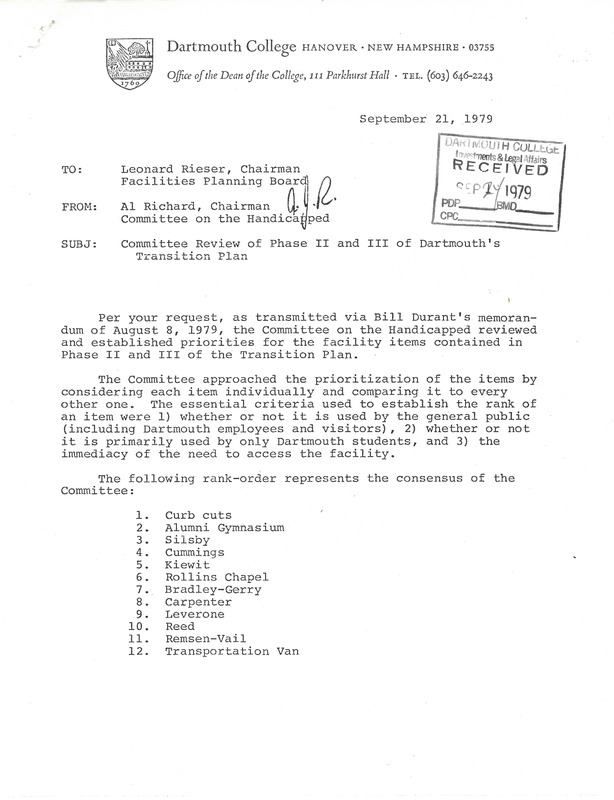
The Committee review of Phase II and III of their Transition Plan. The Committee lists the buildings that would undergo construction following the conclusion of accessibility renovations for Priority I buildings. This review establishes the order in which the College should prioritize certain buildings.
-
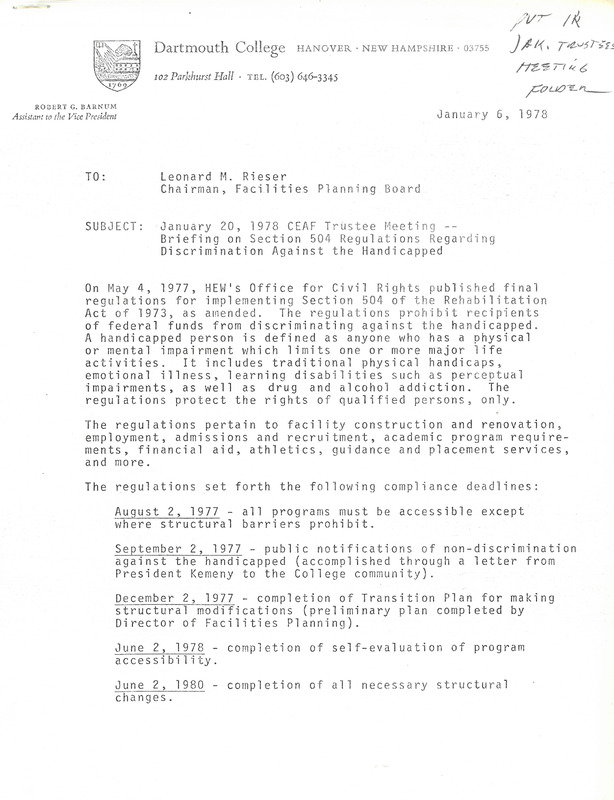
An overview of developments related to Dartmouth’s response to Section 504 of the Rehabilitation Act of 1973 prepared for Leonard Rieser in advance of a January 20, 1978 Board of Trustees meeting. The document outlines compliance deadlines, a survey of campus facilities with estimates of renovation costs, and descriptions of the different priority levels in the institutional Transition Plan.
-
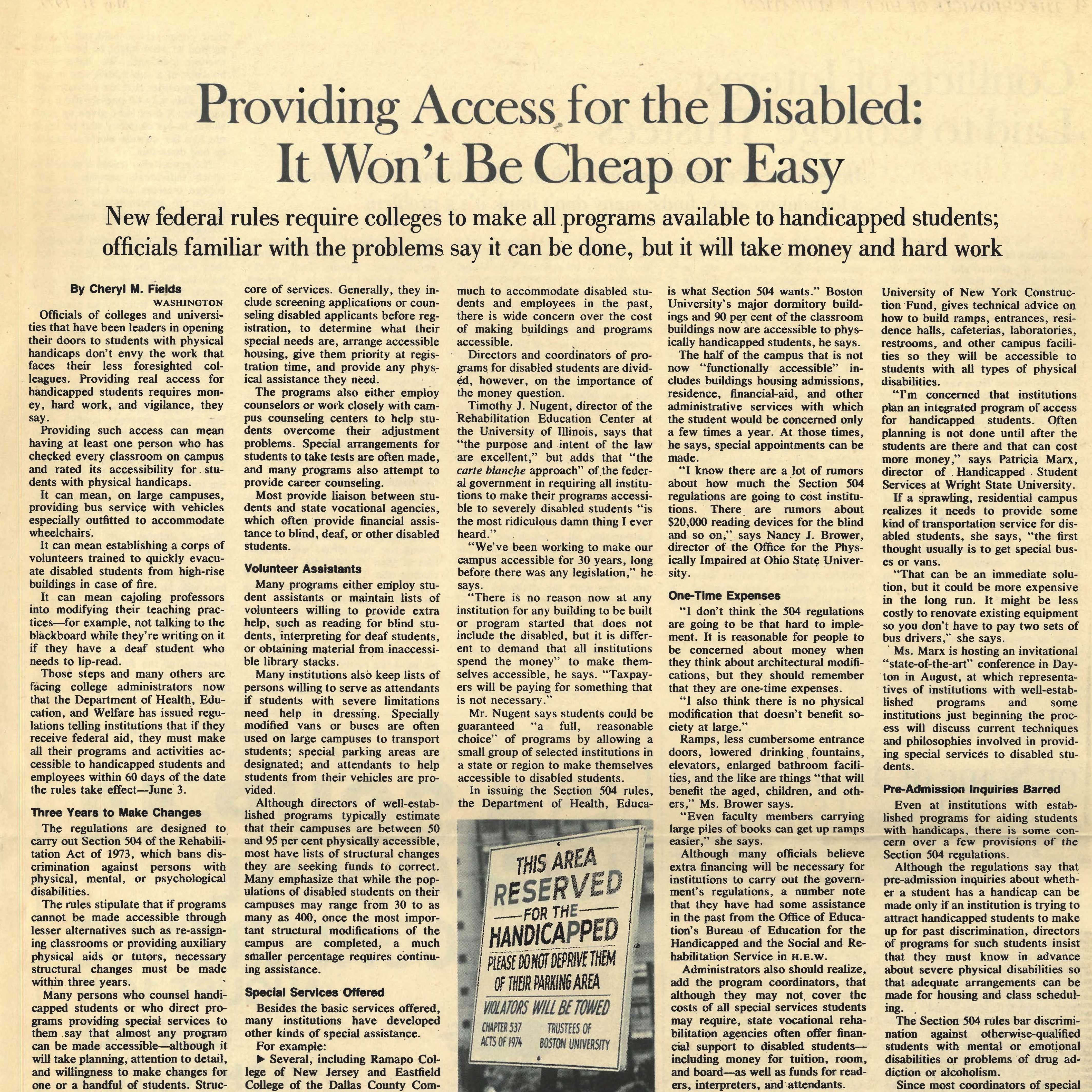
An article in the Chronicle of Higher Education that details the ways in which Section 504 will impact institutions of higher education. The article notes that the path to federal compliance requires the input of those in-depth knowledge of the specific institution seeking compliance, as the ways in which different institutions are inaccessible can vary widely. However, it covers common accessibility issues, steps to remedy those issues, and the expense of making necessary changes.
-
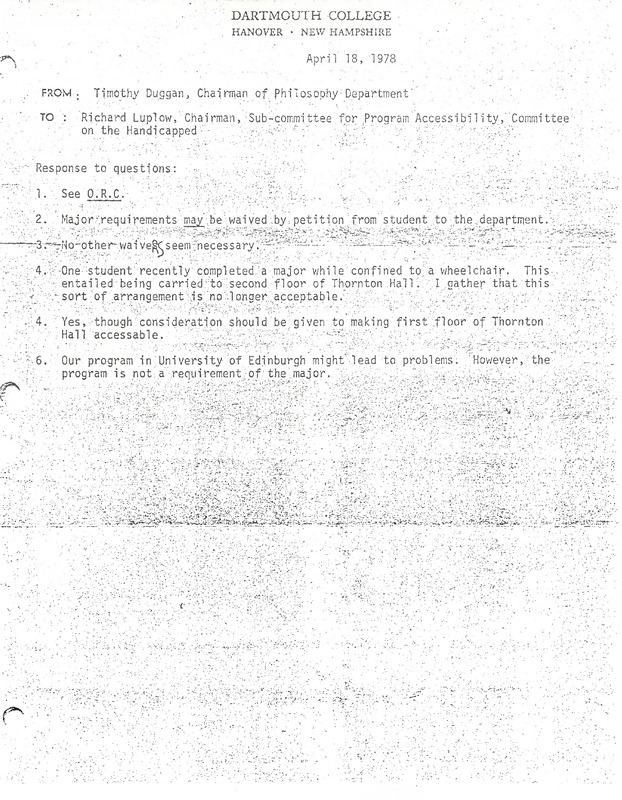
The official self-evaluation of the Department of Philosophy, which is noticeably brief. Despite the taciturn answers of Chair Timothy Duggan, he and his department successfully accommodated a student wheelchair user by having him physically carried to his second floor classes in Thornton Hall. The remark that he “[gathers] this arrangement is no longer acceptable,” is likely a joke to be shared with the memo's recipient, Richard Luplow, a professor and wheelchair user with first-hand experience being carried to inaccessible locations as an ad hoc accommodation.

























